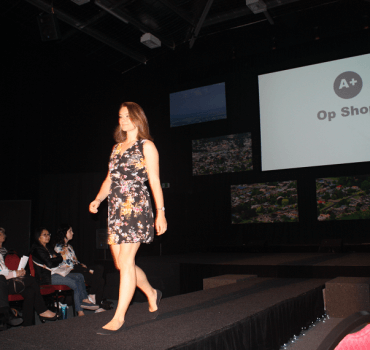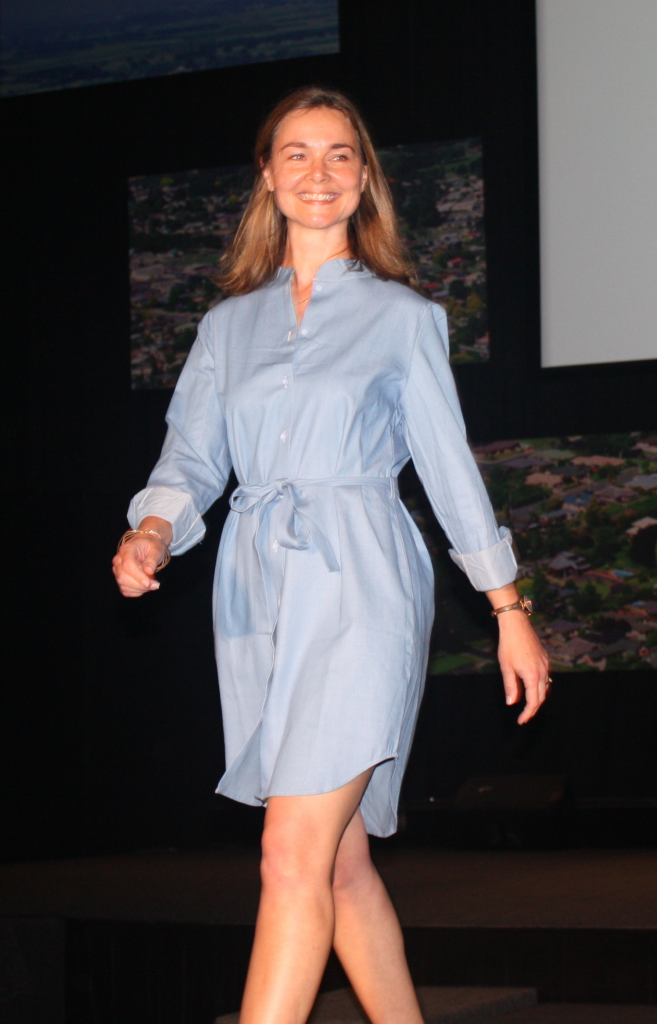

The weekend’s ethical fashion show highlighted shopping tips from Tear Fund’s Ethical Fashion Guide.
Every time we shop, we have a vote. It’s a vote that you make more than every three years.
That was one of the messages at the weekend’s ethical fashion show in Cambridge. Statistics on global consumption of clothing are alarming, with an estimated 30% of new clothing in Britain going straight to the dump and 11 million tonnes of clothes ending up in landfills every year in the United States. This has been due to the rise of “fast fashion”, cheap, low-quality clothing that is designed to have a quick turnover in people’s wardrobes.
“There has been a 400% increase in the number of clothes and textiles consumed in the last 20 years,” Claire Hart from Tear Fund told the crowd. This massive increase has come at the expense of factory workers, often in developing countries, who are forced into a situation little better than slavery, she said. “The degree of exploitation is appalling and it can seem very distant from us.”
 A panel made up of Kath Lind, Amie Berghan, Tori Vaysey and the night’s co-organiser Mel Moore then took to the stage for a discussion about their own ethical fashion journeys.
A panel made up of Kath Lind, Amie Berghan, Tori Vaysey and the night’s co-organiser Mel Moore then took to the stage for a discussion about their own ethical fashion journeys.
Tori said she found it surprisingly easy to find second-hand clothing (excluding underwear and socks), while Kath went through a step-by-step process for purchasing new clothes. First and foremost, the question to ask is “do I really need it?” she said. Then how can we get it second hand, and go for quality over quantity if you have to buy new. “Buying New Zealand made will cost more, but it will last a lot longer,” she said.
Claire Hart then walked the crowd through Tear Fund’s Ethical Fashion Guide, which gives companies a grade using 40 criteria across three stages of the supply chain – raw materials, fabric mills and end stage production. Clothing companies Tear Fund approaches either say “we hear from customers that they want improvement” or “we don’t think our customers care about this”, Claire said. One company owner told her they could not make their business model work if there were regulations in their factories. “Look, basically I’m trying to keep people in New Zealand employed, I don’t have time to care about people in the factories,” he told her.
The time is now to speak up, otherwise business owners like this will think all that matters to their customers is price, she said. “If you don’t shop at the shops, the shops won’t exist,” Claire added.
Rounding out the night was a fashion parade, with only ethical clothing on the catwalk including garments from Cotton On – proof that it can be done, and at an affordable price.
Visit www.tearfund.org.nz for a downloadable version of the Ethical Fashion Guide








